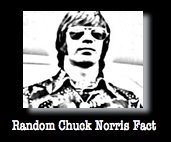
I'm not exactly known for my conversation skills, as I'm sure the Kool-Aid Gang could easily attest to. Perhaps this is why I spend so much time on this blog. Thoughts and words I could just as easily speak are sometimes easier to let out in writing or typed out on a computer. I don't know if this is a product of my personal insecurities, my obsessive-compulsiveness, or a combination of both. The fear that my spontaneous words will somehow come off as dumb, ignorant, or insulting sometimes get the best of me, and I feel more comfortable with the ability to think about my thoughts and to use a medium that's easily edited before I release it to people around me. But the power of the spoken word is something I probably take for granted, as I realized while watching The Diving Bell and the Butterfly.
The film tells the story of Jean-Dominique Bauby, the editor of French Elle magazine in the 90's after he suffers an acute stroke that leaves him "locked-in, " unable to speak or move except for the residual ability to blink his left eye. Much of the film is told in a sort of voice-over from the perspective of Bauby himself. We can hear (and at times, see) his thoughts as he reacts to his predicament and observations. Used to the high life of fashion, art, and beautiful women, he's now left somewhat disfigured and initially without any means to communicate except for a simple yes or no with one or two blinks of his functioning eye. Eventually, Bauby learns to accept his condition. With the help of a caring speech therapist, he learns to convey his thoughts via a tedious method of someone going through a rearranged alphabet with the most used letters coming first until hitting on the letters he needs to spell out a word. This method allows him not only to "talk" to his friends and family, but also to write a book about what he's learned.
Rather than creating a predictable journey in which the glamorous playboy learns the error of his ways and makes amends for his sins by the end of the movie, The Diving Bell and Butterfly avoids such canonization. Via flashbacks and visitations from people from his life, we learn that Bauby had a pretty full life before his event. For the most part, he has no regrets, and still retains some of the flaws that plagued his love life even before his life-altering stroke. Celine, the mother of his children, continues to stay with Jean-Do until his death despite the fact that he still yearns for the lover he left her for to come and visit him. By the end of the movie, you get a sense that life is precious and imagination is powerful. Jean-Do, in his physical state, is like a man trapped in a diving bell being dragged down into the depths of the sea. Yet his love of life allows him to flutter outside of himself to escape and truly experience the joys still around him.
This is not a conventional "feel-good" kind of movie, but I think you'll come out of it appreciating life a bit more. 
Sunday, January 27, 2008
Vegetables are good for you...
Posted by
Swany
at
7:16 PM
![]()
![]()
Flavorings: Dangerously Cheesy, movie reviews
Subscribe to:
Post Comments (Atom)



1 comment:
He should have eaten more Bok Choy. WW vegetable trivia #4
Post a Comment